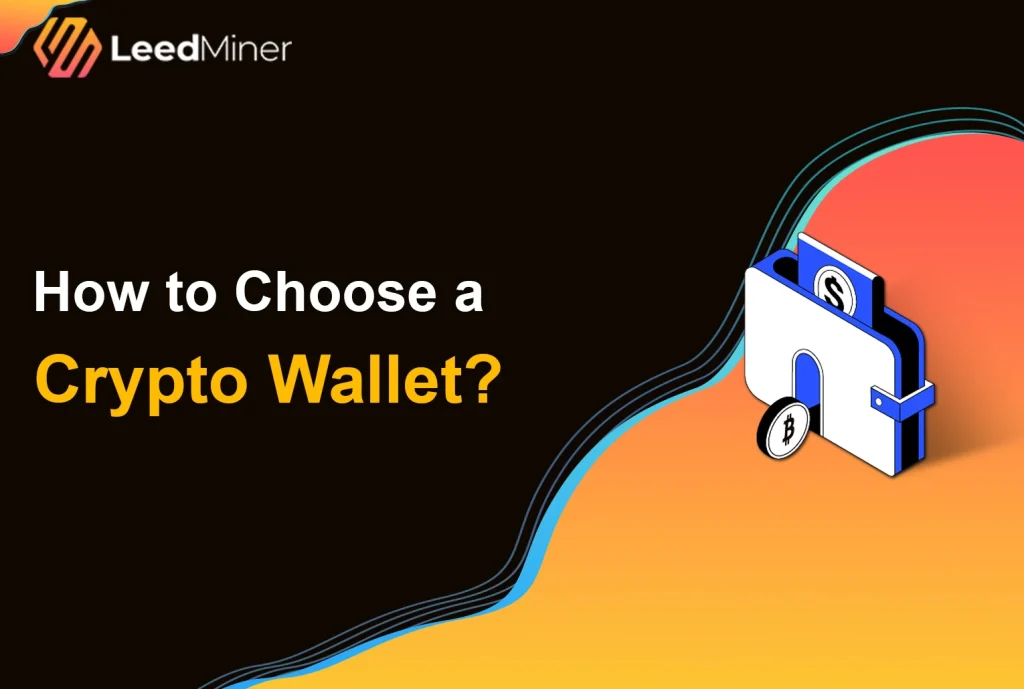How to Choose a Crypto Wallet ?
Mining101
- tagwu

SUMMARY
In the world of cryptocurrency, there’s an old saying: “Not your keys, not your coins.” This is not just a catchy phrase—it’s a serious warning. Your crypto wallet holds the keys to your digital assets. Lose those keys (private key or seed phrase), and you could lose everything.
That’s why choosing the right wallet is one of the most important decisions for anyone involved in crypto—especially miners.
Whether you’re solo mining, using a mining pool, or participating in merged mining (e.g. LTC+DOGE), you must configure the correct wallet address in your mining pool settings. Without this, the pool can’t send you your rewards. Simple misconfigurations or using an insecure wallet could cost you all your mining income.
This guide will walk you through how to choose the right crypto wallet based on your needs.
What Is a Crypto Wallet and Why It Matters
A crypto wallet is a tool—software or hardware—that stores your private keys. These keys allow you to access, send, and receive cryptocurrencies.
Unlike a bank account, your wallet doesn’t actually “store” the coins. The coins exist on the blockchain; your wallet holds the credentials to access them.
For miners, your wallet is where the mining pool sends your rewards. If you’re doing dual mining (like mining Litecoin and receiving Dogecoin as a merged bonus), you’ll need to provide a valid wallet for each coin to receive both payouts.
Without proper wallet configuration, you may mine for hours or days—and receive nothing.
Cold Wallets vs Hot Wallets : What's the Difference

There are two main categories of wallets:
Cold Wallets
Wallets that are not connected to the internet. These are considered the most secure.
Hot Wallets
Wallets that are connected to the internet, making them easier to use—but more vulnerable to hacks.
Types of Cold Wallets

• Hardware Wallets
Devices like Ledger and Trezor. These are physical USB-style wallets that store your private keys offline.
Ideal for long-term storage and mining HODLers.
• Air-gapped Wallets
Wallets installed on a device that never connects to the internet, like an old phone or computer.
Very secure but requires technical know-how.
• Paper Wallets
A physical piece of paper with your public/private keys or QR codes.
Very risky if not stored safely. Obsolete for most users.
Types of Hot Wallets

• Mobile Wallets
Apps like Trust Wallet, Exodus, or Atomic Wallet. Easy to use on smartphones.
Great for everyday use, but be careful of malware or theft.
• Desktop Wallets
Programs like Electrum or Bitcoin Core installed on your PC or Mac.
Good control; semi-secure depending on internet exposure.
• Web Wallets
Browser-based wallets like MetaMask or exchange-integrated wallets.
Convenient, but always connected to the web.
• Exchange Wallets
Wallets hosted by exchanges like Binance, Coinbase, or OKX.
Useful if you sell mined coins immediately.
Risk: You don’t control the private key.
Choosing the Right Wallet for Mining
How you mine—and what you do with your earnings—should determine your wallet type:
Scenario A: You Mine and Hold Long-Term
Use a cold wallet. Best options:
- Hardware wallet (Ledger, Trezor)
- Air-gapped mobile/desktop wallet
This setup minimizes online exposure and protects your mining profits.
Scenario B: You Mine and Sell Frequently
Use a hot wallet, especially:
- Mobile wallet with fast access
- Exchange wallet (e.g. Binance, Coinbase)
This gives you instant access to trade or convert your crypto into fiat.
For All Miners:
- Always configure your mining pool with the correct wallet address.
- For merged mining, set wallets for both coins (e.g. LTC and DOGE).
- Double-check wallet addresses—typos or wrong addresses = lost rewards.
Protect Your Wallet Like Your Life Depends on It
Losing access to your wallet means losing your coins forever.
There’s no “forgot password” button in crypto.
Must-do Security Practices:
- Back up your seed phrase in multiple secure places.
- Never share your private key or recovery phrase.
- Consider encrypting your wallet or using multi-signature setups.
- Don’t store wallet data on cloud drives or online notes.
CONCLUSION
Choosing the right wallet isn’t just about tech or convenience—it’s about protecting your hard-earned crypto.
Especially if you’re a miner, your wallet is the gateway between your computational power and your earnings.
Set it up wisely, secure it tightly, and never lose your keys.
Remember: No Key = No Coin.
FAQs on Crypto Wallet
What type of wallet should I use for mining payouts?
If you’re holding your mining rewards long-term, use a cold wallet like a hardware wallet or offline wallet for maximum security. If you sell frequently, a hot wallet or exchange wallet is more convenient for quick access and trading.
Why do I need to set up a wallet in my mining pool?
Mining pools need your wallet address to send your earned cryptocurrency. If you don’t set it—or if it’s incorrect—you won’t receive any mining rewards. For merged mining, you must configure wallets for each coin involved.
What happens if I lose my private key or seed phrase?
If you lose your private key or seed phrase, you permanently lose access to your wallet and its funds. There’s no recovery method. Always back it up in multiple safe locations.






